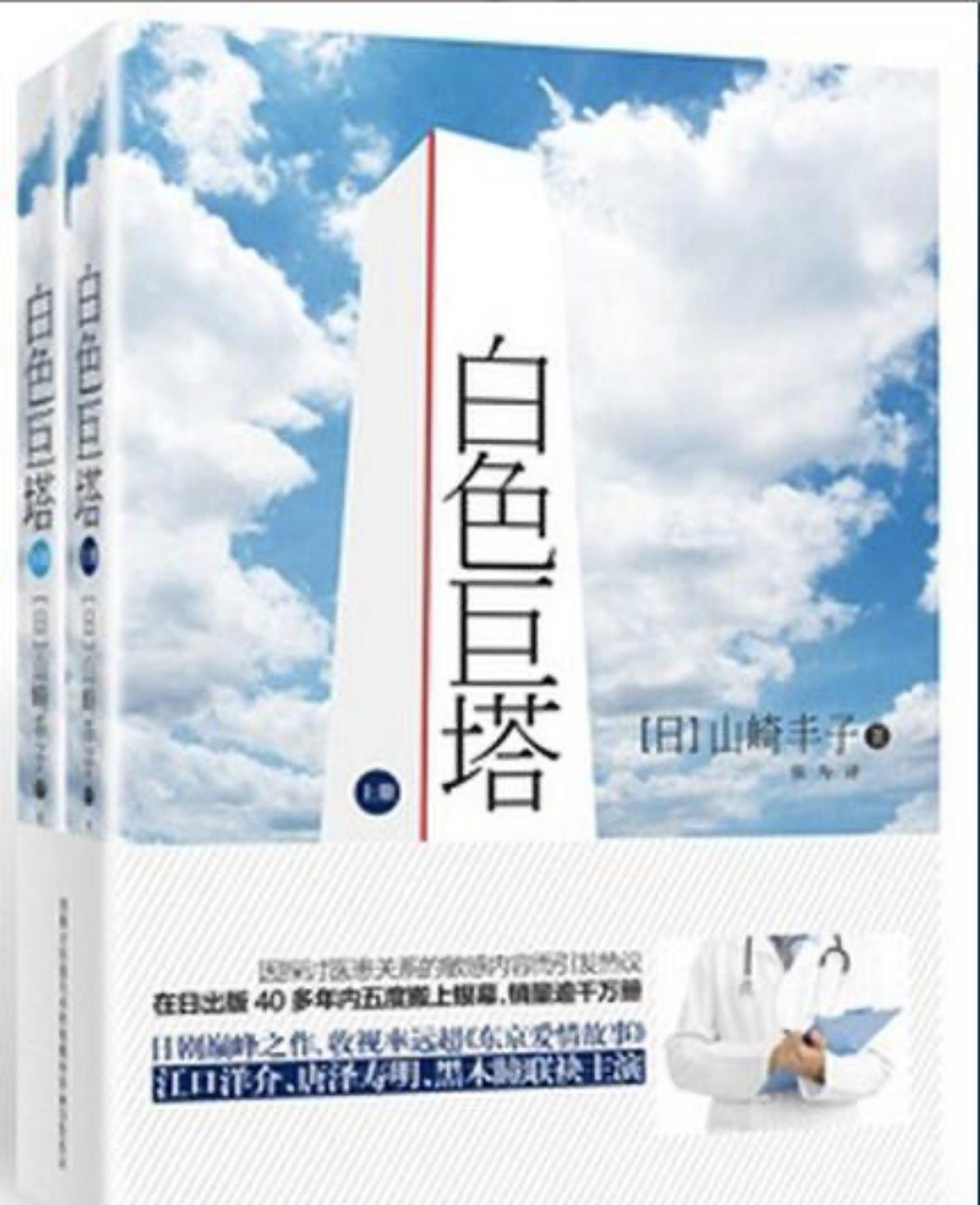The White Tower is a novel by Japanese writer Toyoko Yamazaki, first published in 1963. The Japanese drama of the same name was rated as the "Pinnacle of Japanese Drama" with a rating of 9.6. Before writing this novel, Yamazaki Toyoko was hospitalized for illness, and during the days when Yamazaki was hospitalized, Yamazaki created this realistic novel inspired by the inner pain of the feudal, decadent, and bureaucratic medical system of Japanese university hospitals, facing the real problems of Japanese society.

The novel can be simply divided into two parts, the first half is the dispute between the professors and the second half is the dispute over the case. The dispute over professors is a political game in which Professor Dong will elect a new professor after retirement, and it is also the first climax of this book. Because the arrogance annoyed Professor Inshi higashi's decision to join hands with Professor Ukai of the Medical Department to win the position of professor, and Professor Higashi, in order to be able to control the second surgery Professor Imazu after retirement, to promote Professor Kikukawa, who was loyal to the academics of the foreign school, the two factions "showed their skills" in front of and behind the scenes, using various means to win votes, and finally Caizen won the victory with a slight difference.
As expected to become a professor, the financial scenery is unlimited, and various celebrations and social activities have begun, and the invitation to the German conference has also arrived as scheduled; in contrast, the "failed" Dongpai, the appointment letter of the dean of the nursing home served as a nursing home after Professor Dong's retirement has not come, and Imakisu has basically no right to speak in the system. The dispute over professors is not about choosing the right person to be a professor, but about being a political game of gangs and factions, and everyone is fighting for their own interests. The dispute over the case is the second climax of the book, and it is also the most "heart-wrenching" part of the book. It points to a question: When a famous doctor who has saved countless people, in one operation, causes the patient to die quickly due to negligence, but he does not feel that he is wrong, and you, when you know the whole thing, will you tell the truth?
Tell the truth, the patient's family will be compensated, the doctor will be dismissed from his post and cannot continue working, but you may also be implicated. Don't tell the truth, the patient's family is in trouble, the doctor can continue to work to save other patients, you will also benefit. Cai Qian was caught in such a case, a simple, easy stomach cancer surgery, he thought that there was no need to take x-rays to test the lung metastasis, and the lung situation was not not noticed during the operation, and the reflection of the postoperative patient did not make him think of the possible lung condition, only that it was postoperative pneumonia, and he was about to leave for Germany to participate in the academic conference.
The patient, Sasaki, eventually died unexpectedly and suddenly. Sasaki's death suddenly, everything in the family store was not taken care of, and the family found that the cause of death was actually caused by not detecting the lungs in time, so the long and difficult prosecution began... It's not just a matter of doctor-patient relationship, it's about what's going on inside the healthcare system. Many people within the medical system were involved in the trials and appeals, and each person spoke from a different perspective, either for pure academic inquiry, or for the honor of the medical system, or for their own interests... Although they are all doctors, they are not only doctors when they stand in court.
And the wonderful book is also the second half of the case, again and again in court, again and again to fight, perhaps as readers we all hope that "justice" wins, but when we go further, think about it, if it is us, what kind of testimony we will make? Under the repression of human selfish desires and power, can we make the "right" choice? This case, this question, is still of thought-provoking significance more than fifty years after the novel was published.